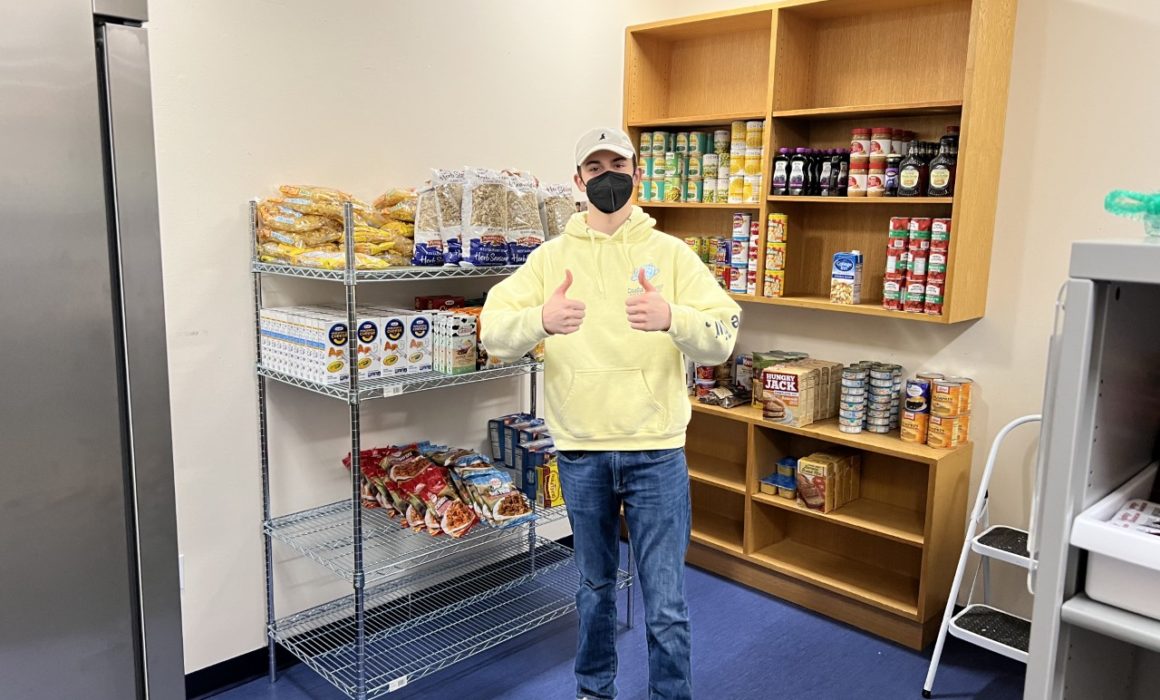Community Colleges’ Staff Do More Than Teach
The national statistics about who attends community colleges tell part of the story: among students entering college in the fall of 202, 39% of community college students had experienced food insecurity in the past year; 48% of the over 195,000 college students surveyed experience housing insecurity; and 14% were affected by homelessness, according to the 2021 #RealCollege Survey, by the Hope Center for College, Community, and Justice. Overall, 13% had lost a loved one to COVID, with Latinx students more than twice as likely as White students to lose a loved one, the survey found.
“The pandemic didn’t stop the need [because campus was closed down.] It exacerbated it in a lot of ways,” says T.J. Barber, campus associate dean of student development, Manchester Community College (MCC). The pandemic “highlighted just how critical it is for the College and other institutions to be aware of what is out there to help our students.”
Community colleges offer a host of services to address basic needs, including food pantries, emergency aid and laptop loans. The need just increased during the pandemic, Barber says. While the campus was shut down, Barber and another MCC staff member drove repeatedly to Rentschler Field in East Hartford to get boxes of groceries distributed by Foodshare to give to students, since students didn’t have cars and couldn’t bring the food home by bus without it spoiling during the three-hour trip.
With classes converting to remote only in March of 2020, students needed laptops and hotspots since many couldn’t afford home internet service or computers. The MCC library loaned out about eight laptops for two-day loans prior to the pandemic, and, when campus closed, the MCC Foundation funded an additional 20 laptops for a semester-long loan, says Debbie Herman, director of library and educational technology, MCC. Through CARES Act funds, the college purchased 60 more laptops to lend out through the Library, as well as 18 hotspots, she says.
“The library has always been a haven for students who need a quiet place to study or a printer or computer,” she says. “When we had to close down in March 2020, it was devastating not to be able to provide students with that space.”
Some students found themselves out of work when the pandemic hit, so they were able to get emergency funds to pay an abnormally high utility bill or for an unexpected car repair, food assistance, and, when campus reopened, help completing applications for the Supplemental Nutrition Assistance Program (SNAP), Barber says. According to the #RealCollege Survey, more than half of respondents reported having at least moderate anxiety, and staff like Barber and his team try to encourage students to take advantage of the mental health counseling and academic support services.
This is why, Barber says, he never turns down a donation or an offer to volunteer: The “Career Clothing Closet” holds a lot more than business attire, since students’ basic needs must be met to be ready to learn. It also includes baby clothes, sweatpants, pots, pans, dishes and furniture.

